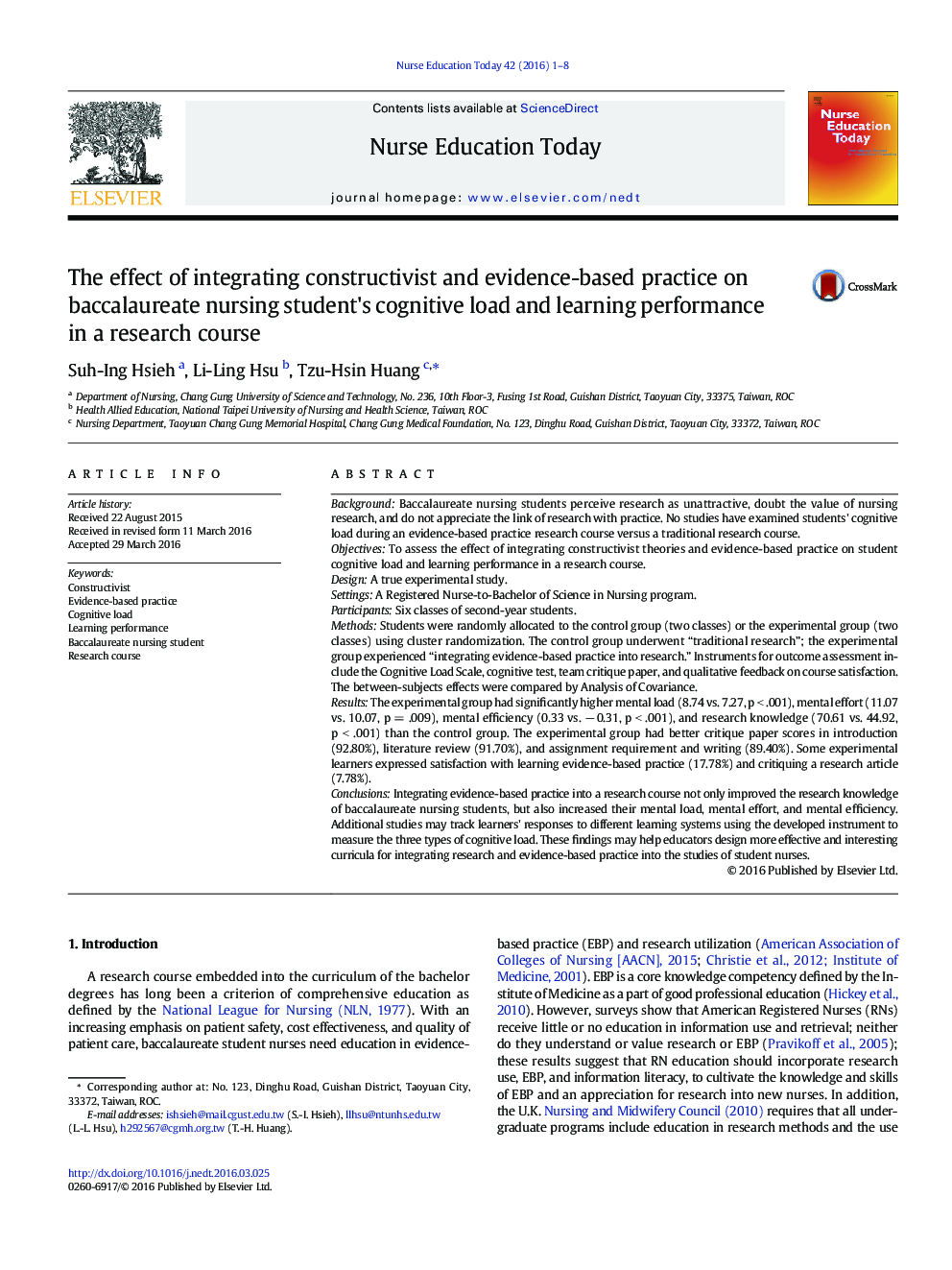| کد مقاله | کد نشریه | سال انتشار | مقاله انگلیسی | نسخه تمام متن |
|---|---|---|---|---|
| 367828 | 621546 | 2016 | 8 صفحه PDF | دانلود رایگان |
• The cognitive load of nursing students in a nursing course is unknown.
• This study integrated evidence-based practice (EBP) in a nursing research course.
• Integrating EBP improved nursing research knowledge and had a higher mental efficiency.
• Findings may help improve design of curricula for the nursing research course.
BackgroundBaccalaureate nursing students perceive research as unattractive, doubt the value of nursing research, and do not appreciate the link of research with practice. No studies have examined students' cognitive load during an evidence-based practice research course versus a traditional research course.ObjectivesTo assess the effect of integrating constructivist theories and evidence-based practice on student cognitive load and learning performance in a research course.DesignA true experimental study.SettingsA Registered Nurse-to-Bachelor of Science in Nursing program.ParticipantsSix classes of second-year students.MethodsStudents were randomly allocated to the control group (two classes) or the experimental group (two classes) using cluster randomization. The control group underwent “traditional research”; the experimental group experienced “integrating evidence-based practice into research.” Instruments for outcome assessment include the Cognitive Load Scale, cognitive test, team critique paper, and qualitative feedback on course satisfaction. The between-subjects effects were compared by Analysis of Covariance.ResultsThe experimental group had significantly higher mental load (8.74 vs. 7.27, p < .001), mental effort (11.07 vs. 10.07, p = .009), mental efficiency (0.33 vs. − 0.31, p < .001), and research knowledge (70.61 vs. 44.92, p < .001) than the control group. The experimental group had better critique paper scores in introduction (92.80%), literature review (91.70%), and assignment requirement and writing (89.40%). Some experimental learners expressed satisfaction with learning evidence-based practice (17.78%) and critiquing a research article (7.78%).ConclusionsIntegrating evidence-based practice into a research course not only improved the research knowledge of baccalaureate nursing students, but also increased their mental load, mental effort, and mental efficiency. Additional studies may track learners' responses to different learning systems using the developed instrument to measure the three types of cognitive load. These findings may help educators design more effective and interesting curricula for integrating research and evidence-based practice into the studies of student nurses.
Journal: Nurse Education Today - Volume 42, July 2016, Pages 1–8
